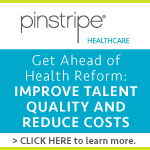ASHHRA eNews Pulse
ASHHRA
ASHHRA eNews Brief: August 2013Visit https://www.naylornetwork.com/ahh-nwl/articles/index-v3.asp?aid=230169&issueID=25985 to view the full article online.
Visit https://www.research.net/s/PYSGYX2 to view the full article online.
Visit http://www.ashhra.org/toolkits/a-e/employee_engagement.shtml#whitepapers to view the full article online.
Visit http://www.ashhra.org/learning/webinars.shtml#082713 to view the full article online.
Visit http://tinyurl.com/legzqgp to view the full article online.
Visit http://www.ashhra.org/conference/2013/index.shtml to view the full article online.
Visit http://www.ashhra.org/learning/certification.shtml#chhrprepguide to view the full article online.
Visit http://altarum.org/sites/default/files/uploaded-related-files/CSHS-Labor-Brief_August%202013.pdf to view the full article online.
Visit http://amednews.com/article/20130717/profession/130719995/8/ to view the full article online.
Visit http://www.prnewswire.com/news-releases/healthcare-worker-confidence-index-remains-unchanged-more-workers-likely-to-job-search-218849591.html to view the full article online.
Visit http://www.fiercehealthcare.com/story/healthcare-employment-job-growth-slowing/2013-08-12 to view the full article online.
Visit http://www.healthcarefinancenews.com/news/empowering-front-line-workers to view the full article online.
Visit http://www.fiercehealthcare.com/story/3-top-healthcare-staffing-challenges-and-how-solve-them/2013-08-09 to view the full article online.
Visit http://www.beckershospitalreview.com/compensation-issues/30-statistics-on-physician-compensation-amga-2013.html to view the full article online.
Visit http://www.healthcarefinancenews.com/news/ceo-compensation-business-strategy to view the full article online.
Visit http://www.beckershospitalreview.com/hospital-management-administration/stop-paying-for-paltry-performance-5-tips-for-hospital-leaders.html to view the full article online.
Visit http://www.naylornetwork.com/ahh-nwl/pdf/Microsoft_Word_-_August_HR_Pulse_Employee_Engagement_Article_Updated_7_15_13.pdf to view the full article online.
Visit http://amednews.com/article/20130729/profession/130729940/6/ to view the full article online.
Visit http://www.beckershospitalreview.com/workforce-labor-management/3-reasons-you-need-to-include-employee-engagement-in-your-lean-improvement-efforts.html to view the full article online.
Visit http://www.beckershospitalreview.com/workforce-labor-management/10-biggest-talent-management-challenges-for-healthcare-organizations.html to view the full article online.
Visit http://www.fiercehealthcare.com/story/3-ways-hire-and-keep-exceptional-employees/2013-08-02 to view the full article online.
Visit http://www.healthleadersmedia.com/content/HR-295106/4-Social-Media-Policy-Fundamentals to view the full article online.
Visit http://amednews.com/article/20130729/profession/130729942/4/ to view the full article online.
Visit http://www.beckershospitalreview.com/hospital-management-administration/physicians-increasingly-pursuing-executive-mba-degrees.html to view the full article online.
Visit http://amednews.com/article/20130722/profession/130729972/9/ to view the full article online.
Visit http://www.healthcarefinancenews.com/news/incentives-needed-doctors-email to view the full article online.
Visit http://www.fiercehealthcare.com/story/healthcare-reforms-mean-more-supersized-hospitals/2013-08-13 to view the full article online.
Visit http://www.healthleadersmedia.com/content/FIN-294282/Healthcare-CFOs-Sing-Reform-Blues to view the full article online.
Visit http://amednews.com/article/20130812/opinion/130819972/5/ to view the full article online.
Visit http://www.fiercehealthcare.com/story/dont-forget-each-worker-can-boost-patient-satisfation-results/2013-08-09 to view the full article online.











